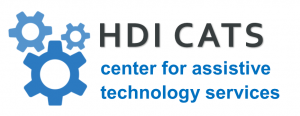Author: Dr. Nicholas Wright
-
Employment First Means video
“It is the policy of the Commonwealth of Kentucky that competitive integrated employment shall be considered the first and primary option for persons with disabilities of working age who desire […]
-
Vocational Rehabilitation Technical Assistance Center for Quality Employment (VRTAC-QE)
Funded by the University of Wisconsin-Madison via a grant from the U.S. Department of Education’s Office of Special Education and Rehabilitative Services, the VRTAC-QE is a partnership with HDI, Virginia Commonwealth University, University of Illinois at Urbana–Champaign, Florida Atlantic University, University of Texas at El Paso, South Carolina State University, and the private, not-for-profit Council…
-

Center for Assistive Technology Services
HDI Center for Assistive Technology Services (CATS) is the regional Assistive Technology Regional Center (ATRC) serving Lexington and the surrounding region. The objective of HDI CATS is to provide statewide comprehensive assistive technology (AT) activities in accordance with the federal Assistive Technologies Act of 1998, as amended. AT is any item or piece of equipment…